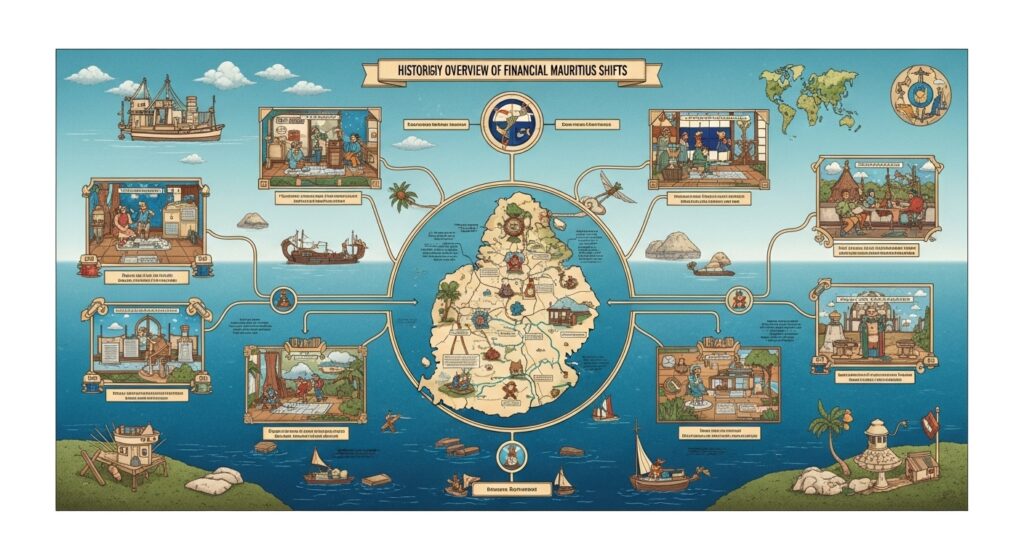Mauritius has long been recognized as a financial hub in the Indian Ocean, blending political stability, a robust regulatory framework, and a favorable business climate. In recent years, however, the island nation has undergone significant transformations—what many refer to as the “Financial Mauritius Shifts.” These shifts reflect not only changes in global finance but also the country’s strategic response to emerging economic realities.
Diversification Beyond Traditional Sectors
Historically, the Mauritian economy was heavily reliant on sugar production and tourism. Over the last two decades, financial services emerged as a central pillar of growth, attracting international investors with low taxation, a solid banking system, and access to African and Asian markets. Today, Mauritius is accelerating efforts to diversify its financial sector, branching into fintech, green finance, and wealth management. This shift ensures resilience in the face of global uncertainty and changing investor demands.
Regulatory and Compliance Evolution
One of the most noticeable financial shifts has been in the regulatory environment. International bodies have called for stronger anti-money laundering measures and greater transparency in tax frameworks. In response, Mauritius has implemented reforms to align with global standards, bolstering its credibility as a secure financial jurisdiction. These changes have enhanced investor confidence, while simultaneously modernizing compliance practices across banks, investment firms, and corporate service providers.
Digital Finance and Innovation
The rapid rise of digital solutions has also left its mark on Mauritius. Mobile banking, digital payment systems, and blockchain-based services are being embraced by both consumers and institutions. Authorities are working toward positioning Mauritius as a regional fintech hub, aiming to attract startups and innovators who can leverage the island’s strategic location and bilingual workforce. This digital shift represents not only modernization but also an opportunity to expand financial inclusion across the population.
Green and Sustainable Finance
Another important dimension of the financial shifts in Mauritius is the growing focus on sustainability. The country is channeling investments into renewable energy, eco-tourism, and sustainable infrastructure. Financial institutions are increasingly adopting Environmental, Social, and Governance (ESG) criteria, ensuring that development aligns with long-term climate resilience. This direction is critical for Mauritius, which remains vulnerable to rising sea levels and climate-related challenges.
Positioning in the African and Global Markets
Mauritius continues to brand itself as a gateway to Africa while maintaining strong ties to Asian markets. This dual positioning is central to its financial evolution. Through new treaties, investment frameworks, and bilateral agreements, Mauritius is enhancing its role as a safe platform for cross-border investments. The country’s shifts in financial strategy demonstrate a deliberate attempt to remain competitive in a world of rapid economic integration.
Conclusion
The “Financial Mauritius Shifts” reflect more than policy changes—they embody the island’s vision of becoming a forward-looking financial center that is transparent, innovative, and sustainable. By embracing regulatory reforms, digital transformation, and green finance, Mauritius is navigating global challenges while securing its place as a trusted hub for international business and investment. These shifts are shaping the next chapter of the nation’s financial journey, positioning it as a resilient player in the evolving global economy.



